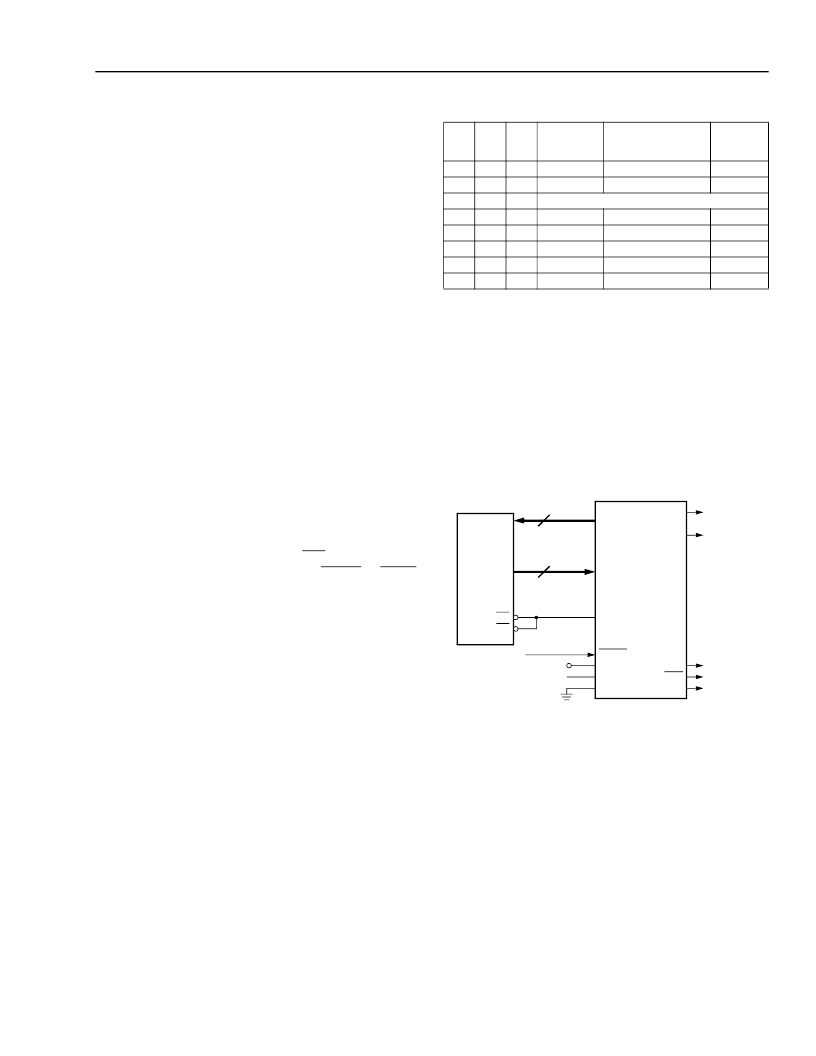- 您現(xiàn)在的位置:買賣IC網(wǎng) > PDF目錄383714 > OR2T04A-3S208 (Electronic Theatre Controls, Inc.) Field-Programmable Gate Arrays PDF資料下載
參數(shù)資料
| 型號(hào): | OR2T04A-3S208 |
| 廠商: | Electronic Theatre Controls, Inc. |
| 元件分類: | FPGA |
| 英文描述: | Field-Programmable Gate Arrays |
| 中文描述: | 現(xiàn)場可編程門陣列 |
| 文件頁數(shù): | 47/192頁 |
| 文件大小: | 3148K |
| 代理商: | OR2T04A-3S208 |
第1頁第2頁第3頁第4頁第5頁第6頁第7頁第8頁第9頁第10頁第11頁第12頁第13頁第14頁第15頁第16頁第17頁第18頁第19頁第20頁第21頁第22頁第23頁第24頁第25頁第26頁第27頁第28頁第29頁第30頁第31頁第32頁第33頁第34頁第35頁第36頁第37頁第38頁第39頁第40頁第41頁第42頁第43頁第44頁第45頁第46頁當(dāng)前第47頁第48頁第49頁第50頁第51頁第52頁第53頁第54頁第55頁第56頁第57頁第58頁第59頁第60頁第61頁第62頁第63頁第64頁第65頁第66頁第67頁第68頁第69頁第70頁第71頁第72頁第73頁第74頁第75頁第76頁第77頁第78頁第79頁第80頁第81頁第82頁第83頁第84頁第85頁第86頁第87頁第88頁第89頁第90頁第91頁第92頁第93頁第94頁第95頁第96頁第97頁第98頁第99頁第100頁第101頁第102頁第103頁第104頁第105頁第106頁第107頁第108頁第109頁第110頁第111頁第112頁第113頁第114頁第115頁第116頁第117頁第118頁第119頁第120頁第121頁第122頁第123頁第124頁第125頁第126頁第127頁第128頁第129頁第130頁第131頁第132頁第133頁第134頁第135頁第136頁第137頁第138頁第139頁第140頁第141頁第142頁第143頁第144頁第145頁第146頁第147頁第148頁第149頁第150頁第151頁第152頁第153頁第154頁第155頁第156頁第157頁第158頁第159頁第160頁第161頁第162頁第163頁第164頁第165頁第166頁第167頁第168頁第169頁第170頁第171頁第172頁第173頁第174頁第175頁第176頁第177頁第178頁第179頁第180頁第181頁第182頁第183頁第184頁第185頁第186頁第187頁第188頁第189頁第190頁第191頁第192頁

Lucent Technologies Inc.
47
Data Sheet
June 1999
ORCA Series 2 FPGAs
Bit Stream Error Checking
There are three different types of bit stream error
checking performed in the ORCA Series 2 FPGAs:
ID frame, frame alignment, and parity checking.
An optional ID data frame can be sent to a specified
address in the FPGA. This ID frame contains a unique
code for the part it was generated for which is com-
pared within the FPGA. Any differences are flagged as
an ID error. This frame is automatically created by the
bit stream generation program in ORCAFoundry.
Every data frame in the FPGA begins with a start bit
set to 0 and three or more stop bits set to 1. If any of
the three previous bits were a 0 when a start bit is
encountered, it is flagged as a frame alignment error.
Parity checking is also done on the FPGA for each
frame, if it has been enabled by setting the prty_en bit
to 1 in the ID frame. This is set by enabling the parity
check option in the bit stream generation program of
ORCA Foundry. Two parity bits, opar and epar, are
used to check the parity of bits in alternating bit posi-
tions to even parity in each data frame. If an odd num-
ber of ones is found for either the even bits (starting
with the start bit) or the odd bits (starting with the pro-
gram bit), then a parity error is flagged.
When any of the three possible errors occur, the FPGA
is forced into the INIT state, forcing
INIT
low. The FPGA
will remain in this state until either the
RESET
or
PRGM
pins are asserted.
FPGA Configuration Modes
There are eight methods for configuring the FPGA.
Seven of the configuration modes are selected on the
M0, M1, and M2 inputs. The eighth configuration mode
is accessed through the boundary-scan interface. A
fourth input, M3, is used to select the frequency of the
internal oscillator, which is the source for CCLK in
some configuration modes. The nominal frequencies of
the internal oscillator are 1.25 MHz and 10 MHz. The
1.25 MHz frequency is selected when the M3 input is
unconnected or driven to a high state.
There are three basic FPGA configuration modes:
master, slave, and peripheral. The configuration data
can be transmitted to the FPGA serially or in parallel
bytes. As a master, the FPGA provides the control sig-
nals out to strobe data in. As a slave device, a clock is
generated externally and provided into CCLK. In the
peripheral mode, the FPGA acts as a microprocessor
peripheral. Table 10 lists the functions of the configura-
tion mode pins.
Table 10. Configuration Modes
Master Parallel Mode
The master parallel configuration mode is generally
used to interface to industry-standard byte-wide mem-
ory, such as the 2764 and larger EPROMs. Figure 40
provides the connections for master parallel mode. The
FPGA outputs an 18-bit address on A[17:0] to memory
and reads one byte of configuration data on the rising
edge of RCLK. The parallel bytes are internally serial-
ized starting with the least significant bit, D0.
5-4483(F)
Figure 40. Master Parallel Configuration Schematic
There are two parallel master modes: master up and
master down. In master up, the starting memory
address is 00000 Hex and the FPGA increments the
address for each byte loaded. In master down, the
starting memory address is 3FFFF Hex and the FPGA
decrements the address.
One master mode FPGA can interface to the memory
and provide configuration data on DOUT to additional
FPGAs in a daisy chain. The configuration data on
DOUT is provided synchronously with the falling edge
of CCLK. The frequency of the CCLK output is eight
times that of RCLK.
M2
M1
M0
CCLK
Configuration
Mode
Master
Slave Parallel
Data
0
0
0
0
1
1
1
1
0
0
1
1
0
0
1
1
0
1
0
1
0
1
0
1
Output
Input
Reserved
Input
Output
Output
Output
Input
Serial
Parallel
Sync Peripheral
Master (up)
Async Peripheral
Master (down)
Slave
Parallel
Parallel
Parallel
Parallel
Serial
TO DAISY-
CHAINED
DEVICES
DOUT
CCLK
HDC
LDC
RCLK
A[17:0]
D[7:0]
DONE
PRGM
M2
M1
M0
A[17:0]
D[7:0]
OE
CE
PROGRAM
V
DD
V
DD
OR GND
EPROM
ORCA
SERIES
FPGA
相關(guān)PDF資料 |
PDF描述 |
|---|---|
| OR2T04A-3S208I | Ceramic Chip Capacitors / MIL-PRF-55681; Capacitance [nom]: 100pF; Working Voltage (Vdc)[max]: 100V; Capacitance Tolerance: +/-10%; Dielectric: Multilayer Ceramic; Temperature Coefficient: C0G (NP0); Lead Style: Surface Mount Chip; Lead Dimensions: 1206; Termination: Solder Coated SnPb; Body Dimensions: 0.125" x 0.062" x 0.051"; Container: Bag; Features: MIL-PRF-55681: S Failure Rate |
| OR2T04A-3S84 | Field-Programmable Gate Arrays |
| OR2T04A-3S84I | Field-Programmable Gate Arrays |
| OR2T04A-4BA208 | Field-Programmable Gate Arrays |
| OR2T04A-4BA208I | Field-Programmable Gate Arrays |
相關(guān)代理商/技術(shù)參數(shù) |
參數(shù)描述 |
|---|---|
| OR2T04A-3S208I | 制造商:未知廠家 制造商全稱:未知廠家 功能描述:Field-Programmable Gate Arrays |
| OR2T04A-3S84 | 制造商:未知廠家 制造商全稱:未知廠家 功能描述:Field-Programmable Gate Arrays |
| OR2T04A-3S84I | 制造商:未知廠家 制造商全稱:未知廠家 功能描述:Field-Programmable Gate Arrays |
| OR2T04A-3T100 | 制造商:未知廠家 制造商全稱:未知廠家 功能描述:Field-Programmable Gate Arrays |
| OR2T04A-3T100I | 制造商:未知廠家 制造商全稱:未知廠家 功能描述:Field-Programmable Gate Arrays |
發(fā)布緊急采購,3分鐘左右您將得到回復(fù)。